Online mattress shopping can be a headache. Not only are you purchasing a bed sight unseen, but you also need to sift through industry jargon and certifications.
Lost in this sea of acronyms and credentials, you might be wondering which mattress certifications actually mean something concrete (and which are more like vague, hand-wavey assurances). Here, we’ve gathered the most common certifications you might encounter when shopping for a bed. We’ll explain exactly what they signify and what they don’t.
Organic Mattress Certifications
Many mattresses bill themselves as eco-friendly, green, or natural, but few are actually certified organic. To make matters more confusing, there’s no one presiding party that can assign the “organic” label—there are a couple, and their standards can vary.
One important note: It’s much more common for the materials inside a mattress to be certified organic than it is for the mattress as a whole to be deemed organic. But media often conflate the two things. When someone refers to a bed as an organic mattress, they probably mean that there are one or more organic textiles—such as wool or cotton—and/or organic latex inside it.
Here are the most common organic certifications you might look for when shopping for a bed.
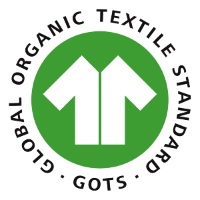
Global Organic Textile Standard (GOTS)
GOTS is a global organization that certifies textiles (such as wool and cotton) as organic according to a long list of standards, including rules about processing, dyes, and chemical residues. They analyze and certify the entire supply chain, not just the makeup of the product. That means if a product is GOTS-certified, the factory where the product was made is GOTS-certified as well, and meets the organization’s rigorous standards for all aspects of production.
There are two versions of a GOTS label: “Made with Organic” and “Organic.” The first label grade requires the textile product to contain 70% or more certified organic fibers. The full “Organic” label grade means that the textile product consists of 95% certified organic fibers.
Achieving GOTS certification is quite difficult, and this is one of the most trustworthy and hard-to-get certifications out there.
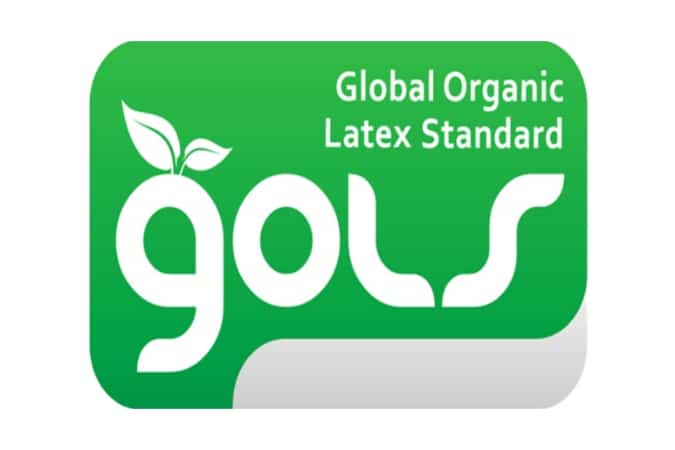
Global Organic Latex Standard (GOLS)
A GOLS-certified layer of latex foam must consist of 95% natural rubber latex and meet additional standards around “permissible limits for harmful substances, emission test requirements and polymer and filler percentages.”
Even though they have very similar names, GOLS and GOTS are not affiliated! They use separate sets of standards to judge and certify textiles and latex, respectively. Like GOTS, GOLS tracks latex through its entire supply chain, from harvest through production. It’s another gold-standard certification that you should look for if you’re prioritizing sustainable and organic products in your home.
Additionally, it’s important to note: Only Dunlop latex mattresses can be GOLS-certified. Talalay latex can be labeled “all-natural,” but because of the chemicals used during the manufacturing process, it cannot be certified organic.
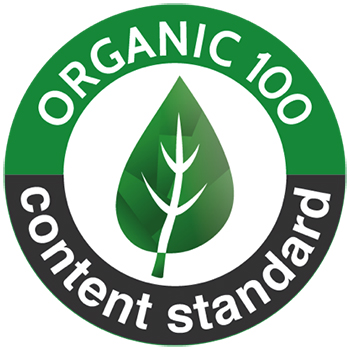
Organic Content Standard
If you see a mattress that meets the Organic Content Standard, that means the bed contains organic materials that are grown and processed according to standards set by the USDA (if the product was made in America).
However, just because you see this seal on a product does not mean it is 100% organic. This seal is only meant to verify the percentage of organic content within a mattress—it’s confirming what the manufacturer is promising, whether that’s 5% organic materials, 100%, or somewhere in between.
It’s also important to note that, unlike GOTS and GOLS, the Organic Content Standard does not analyze the chemicals that may be added to mattresses later on in the manufacturing process. Most of the time, these chemicals come in the form of dyes and finishes.
Can a Mattress Be Certified Organic by the USDA?
Not really! The USDA handles organic certifications for products that we typically associate with agriculture and food, including crops, livestock, and processed goods such as canned soup. Although it can certify farms that raise sheep for wool, or the wool itself based on agricultural standards, it doesn’t assess mattress materials in the same way that GOTS and GOLS do.
Both GOTS- and GOLS-certified products should always meet (and likely surpass) USDA standards.
Other Eco-Friendly Mattress Certifications
Just because a mattress isn’t organic doesn’t necessarily mean it is harmful to the earth. If you’re looking for an eco-friendly option, keep your eye out for the following certifications:
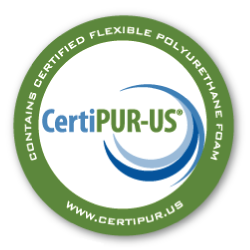
CertiPUR-US®
All of the best memory foam mattresses are CertiPUR-US® certified, which means they are free of certain harmful chemicals and materials. Some of the elements CertiPUR-US® searches for are: ozone depleting chemicals, flame retardants, formaldehyde, mercury, and lead. All CertiPUR-US® certified products also have low volatile organic compound (VOC) emissions.
At Mattress Clarity, we consider a CertiPUR-US® certification a bare-minimum requirement for foam mattresses. Foam beds that don’t have this certification may have attractive price points, but they should be thoroughly vetted before you decide to purchase one.
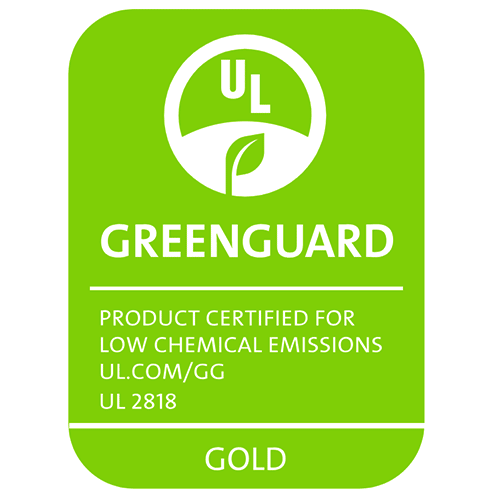
GREENGUARD GOLD
The GREENGUARD Certification Program is concerned with VOC (volatile organic compound) emissions. You’re probably most familiar with these emissions as a chemical odor or “new product” smell. In high amounts, VOC emissions can be harmful to your health.
GREENGUARD certifications are dispensed by an organization called UL Solutions, and they test many products (including mattresses) to precisely and meticulously measure their VOC emissions. After testing, a mattress can earn one of two levels of GREENGUARD certification: GREENGUARD or GREENGUARD Gold.
According to UL Solutions, “UL GREENGUARD GOLD sets even lower VOC emission limits, making it the optimal certification for products in nurseries, schools, healthcare facilities, and homes where children’s safety is paramount.”
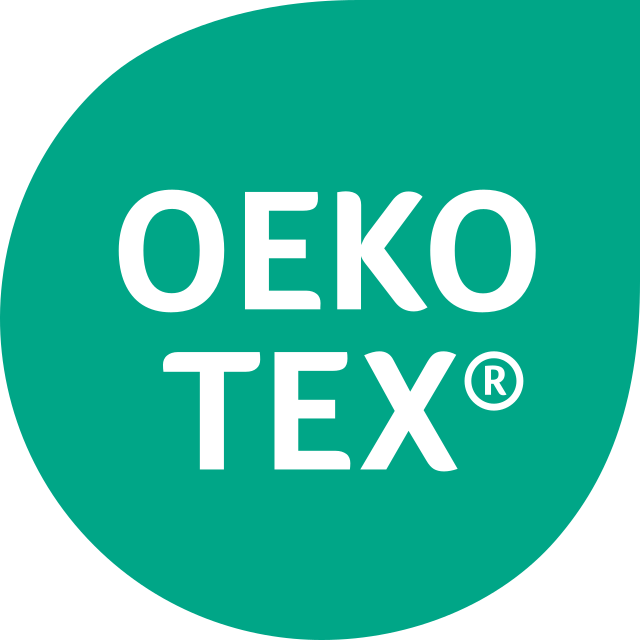
OEKO-TEX®
OEKO-TEX® actually has several standards and certifications, but the one you’re most likely to see on a mattress is the OEKO-TEX® STANDARD 100 label. This label denotes that the product has passed a battery of safety tests meant to detect the presence of harmful or toxic substances.
The list of substances that OEKO-TEX® tests for is quite long, and includes carcinogens, heavy metals, formaldehyde, and pesticides. The prescribed limits for these substances vary depending on the classification that OEKO-TEX® gives the product (for example, products meant for babies have stricter standards).
This is a widely trusted certification and a feather in a company’s cap. It doesn’t denote organic materials or “green” practices, necessarily, but it does cover a lot of bases in terms of ensuring consumer safety.
Verifying Mattress Certifications
Bear in mind that greenwashing—that is, using buzzwords to imply but not outright prove eco-friendly or sustainable practices—is rampant in the mattress industry, and you should always verify for yourself whether a product does indeed have the above certifications. Trustworthy brands will make this process easy by providing their license numbers and other forms of proof.
You can also search for verified brands in the relevant organization’s database, or reach out to the company to request a digital copy of their certification materials. If you can’t find a record of a mattress company being certified when you engage in a bit of research, then you’re well within your right to question whether the brand truly has the certification.

